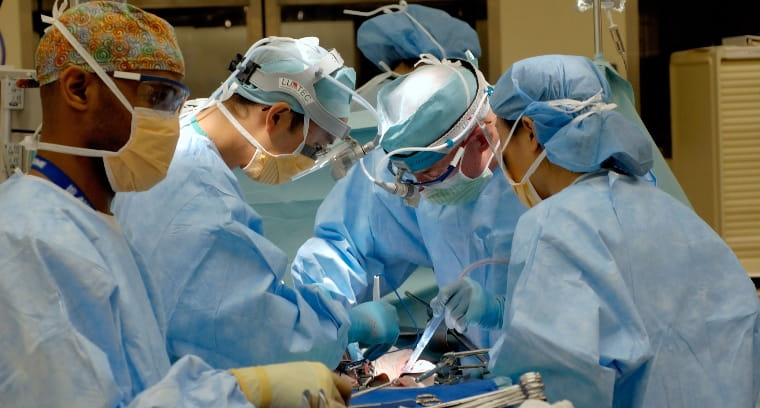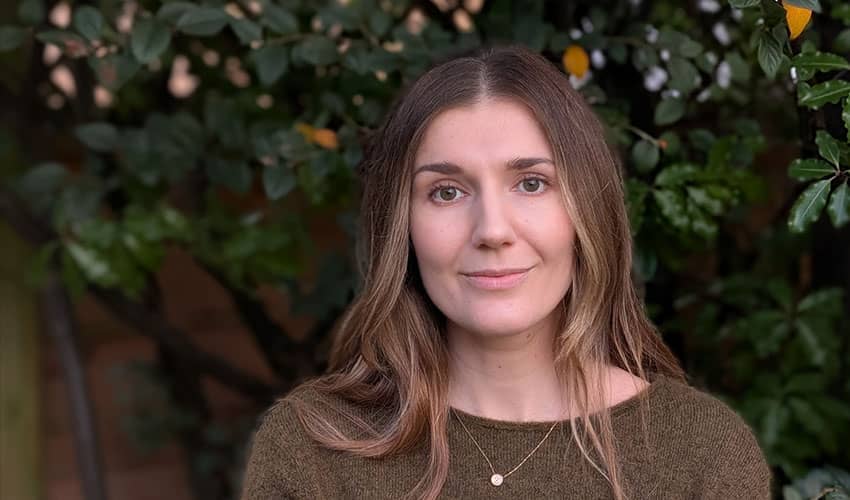Major interventions needed to meet global demand for PPE, say scientists

Greater investment in personal protective equipment (PPE) technology and research, and the creation of local and regional manufacturing centres are just two of the recommendations set out by scientists in a comprehensive review paper aimed at improving the global provision of PPE.
The review, led by Dr Nazmul Karim of UWE Bristol, explores the potential and limitations of PPE around the world and outlines key interventions and areas of investment needed to meet growing demand and to adapt existing PPE to be more environmentally friendly, sustainable and effective.
Nine scientists from universities and research centres across the UK, Singapore and the Republic of Korea authored the review, including Nobel laureate Professor Sir Kostya S Novoselov.
According to the World Health Organisation (WHO), an estimated 89m masks, 76m gloves and 1.6m goggles are required for the COVID-19 response every month and industry will need to increase PPE production by 40% to keep up with demand. Despite these targets, hospitals around the world continue to experience PPE shortages and the global supply chain has been challenged due to rising demand, panic buying, hoarding and misuse.
The review, titled Sustainable Personal Protective Clothing for Healthcare Applications and published in ACS Nano, sets out four key recommendations to avoid PPE shortages in the future and improve the quality of existing PPE:
- Create government-backed local or regional manufacturing, sourcing and distribution facilities to avoid future disruption with supply and ensure that required quality and standards for medical applications are achieved
- Introduce digital technologies, including robotics and artificial intelligence, to minimise labour costs and enable cost-effective manufacturing at scale. This will be particularly important in areas such as Europe and North America where labour costs are high
- Introduce legislation to increase the use of sustainable and reusable protective equipment and invest more into developing environmentally sustainable recycling processes for single use plastic-based PPE
- Invest in research into innovative technologies, such as smart wearable electronic textiles, that can produce more durable PPE and has the ability to monitor the wearer’s physiological conditions
Dr Nazmul Karim, Associate Professor for Novel Print Processes and Materials at the Centre for Fine Print Research (CFPR) at UWE Bristol, said: ‘‘The unprecedented global demand for PPE is far outweighing supply, leaving many hospitals and healthcare workers without the protection they need to stay safe and prevent the spread of the virus. We need to revolutionise the way we manufacture, recycle and distribute PPE so that every country has what it needs to face the threat of COVID-19 while also limiting the devastating impact that plastic-based PPE has on the planet.
‘‘This review, written by some of the world’s leading scientists from multi-disciplinary fields, provides potential solutions to the PPE crisis we are facing and offers practical recommendations for governments, industry and research bodies on how we can work together to transform the PPE sector.’’
Professor Sir Kostya Novoselov, co-author of the review added: “Over the last several years the progress in materials science, including 2D materials, has led to a number of innovations in wearable electronics and sensing, which will undoubtedly be used in manufacturing the next generation of protective clothing.”
Related news

16 February 2026
UWE Bristol researchers awarded grant to explore impact of asset recovery on offenders
UWE Bristol academics have been awarded funding to explore of the impact of asset recovery on deterring offender behaviour and disrupting crime networks.

10 February 2026
Work by UWE Bristol lecturer features in Government’s National Cancer Plan
Work by a UWE Bristol academic has been included in the Government’s National Cancer Plan.

23 January 2026
On-demand minibus services beneficial in rural areas but face financial challenges, trials suggest
Trials of ‘demand responsive transport’ minibus services boosted connectivity for people in rural and suburban areas, according to a new report produced by UWE Bristol researchers.

18 December 2025
UWE Bristol professor appointed National Institute for Health and Care Excellence CEO
Jonathan Benger CBE, Professor of Emergency Care at UWE Bristol, has been appointed as the new chief executive officer of the National Institute for Health and Care Excellence (NICE).

17 December 2025
Findings revealed from first UK study into experiences of mothers who are survivors of rape pregnancy
UWE Bristol academics have revealed the findings of the first UK-based study of the experiences of mothers who are survivors of rape pregnancy.

11 December 2025
Social media influencer work is far more demanding than it looks, research finds
A study exploring the mental health impacts of social media influencer work has revealed that life online is far more demanding than it appears.

25 November 2025
UWE Bristol experts join film Q&A exploring music and melodrama
Academics will take part in the Cary Comes Home Festival, with a post-screening Q&A exploring music, melodrama and emotional storytelling in classic cinema.

17 November 2025
Urgent reform needed to support ambulance-delivered end of life care, study finds
More than three quarters (78 per cent) of paramedics sometimes fear doing the wrong thing when caring for people in the last year of life, new research has found.

13 November 2025
Bristol’s screen industry experiences “boom-and-bust cycle” after post-pandemic recovery, new research from UWE Bristol finds
New research from UWE Bristol provides detailed insight into Bristol's screen sector.

13 November 2025
New AI research to revolutionise animal welfare
A UWE Bristol research project will combine behavioural science and AI to create technology that understands not only what animals do, but how they feel.

10 November 2025
Lessons from Low Traffic Neighbourhoods will drive better public engagement, study finds
Lessons from Low Traffic Neighbourhoods have informed a new toolkit to improve engagement with the public on challenging local street issues.

06 November 2025
First-of-its-kind study aims to help more people spend their final days at home
A new study will explore how architectural design could support end-of-life care in domestic settings.






